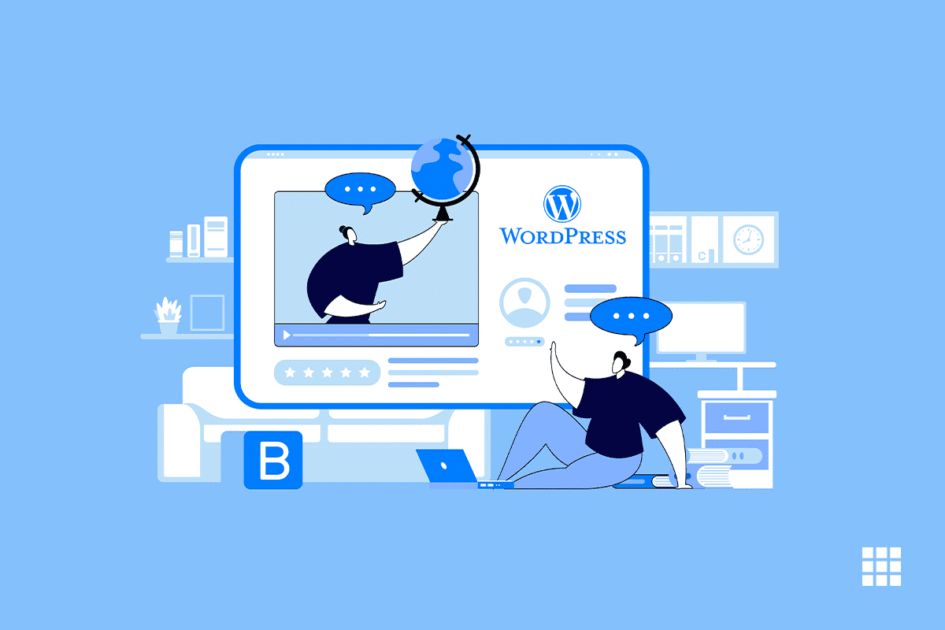Building a professional website for your client may seem daunting, especially if you are venturing into a new niche or are at the beginning of your career. As your client is entrusting you with one of their crucial and greatest marketing assets, your input in the process can either make or break the project.
Fortunately, there are practical, solid steps that you can undertake to ensure that you deliver a highly functional and successful website to your client. By planning every step of the process, you can easily guide your client through the project and, build and deliver a website that meets their expectations.
One of the crucial steps in building a website is choosing the right hosting server as it is one of the foundational factors of building a successful website, moreover, the functioning of the website largely depends on it.
Before you pick one for your client, continue reading to learn about the different types of hosting servers in detail.
Different Types of Hosting for Different Clients
In this section, let’s briefly understand each hosting type and its suitability for different clients. This will help you choose the right website hosting for your client.
1. Shared Hosting
If your client is launching a new website, Shared Hosting may fit the bill. In the shared hosting environment, a single server is shared by a couple of websites. And, as resources of one web hosting are distributed amongst many websites, these plans are available at an economical price. However, in shared hosting, you have access to limited resources, and your website’s performance may be affected by an increase in traffic to other websites that are sharing the hosting server.
Nevertheless, shared hosting is suitable for clients with basic needs. Once your client’s website starts generating higher traffic, you can consider shifting it to a VPS server.
2. VPS Hosting
In VPS hosting, numerous websites are hosted on one server. The main factor that distinguishes VPS hosting from shared hosting is – each website is isolated and has full access control. Herein, exclusive access means that even if any other website sharing the same server is experiencing higher traffic, it will not slow down other websites hosted on that server.
So, if the traffic to your client’s website is eventually increasing and they require more server resources and greater control over the server, VPS hosting would be an excellent and economically viable option for smooth performance.
Bluehost’s VPS hosting is a scalable and customizable platform that offers everything your client’s website needs, such as multi-server management, access control, file management, database management, advanced capabilities, root access, extreme performance, guaranteed resources and more.
3. Dedicated Hosting
Dedicated hosting is a term that describes the web hosting plans that provide a hosting server with dedicated resources to a single website/client. Ideally, dedicated hosting plans are suitable for clients having websites with a huge number of visitors.
With dedicated server hosting, the clients get full control of the server, allowing them to configure it to meet their requirements. Moreover, dedicated hosting plans come in unmanaged and managed forms, wherein, the hosting center can easily manage the server for the client in case of any issues. Generally, dedicated servers are more expensive. The pricing is influenced by the amount of resources required such as the amount of RAM, storage space, and bandwidth, amongst other things.
4. WordPress Hosting
WordPress hosting is a hosting server optimized to better meet the performance and security needs of a WordPress website. Usually, it includes one-click WordPress installs, making it seamless to get started with WordPress. Moreover, some WordPress hosts even update your WordPress software as and when required.
There are two types of WordPress Hosting –
1. Shared WordPress hosting (often referred to as just ‘WordPress hosting’)
In this, you share the hosting with other websites. Nonetheless, your hosting server will still be performance-optimized, you just won’t have it all to yourself.
2. Managed WordPress hosting
It is a plan in which your hosting provider manages the website and server for you and takes care of key tasks like updating your website. However, it is pricier as compared to shared WordPress hosting.
Assess your client’s requirements and choose the best web hosting service
As the differences between various types of hosting servers are not always straightforward, it is essential to understand your client’s needs and expectations before you make any decision. Lay strong focus on the details that will benefit your client’s business budget and size, besides key features that will enhance their websites’ overall experience.
Once you’re done with this, you are all set to choose the best hosting server for your client. However, be wary of checking the hosting provider’s reliability. Choose the one that offers best-in-class services and capabilities, and exceptional customer support at an affordable price.



Write A Comment